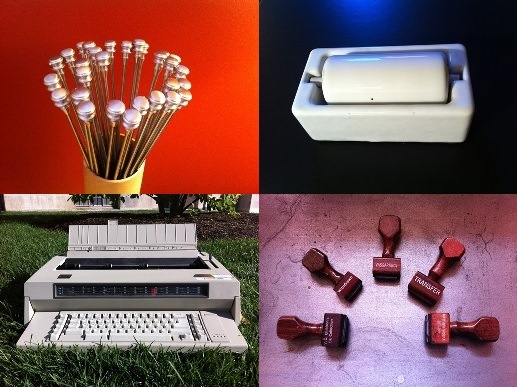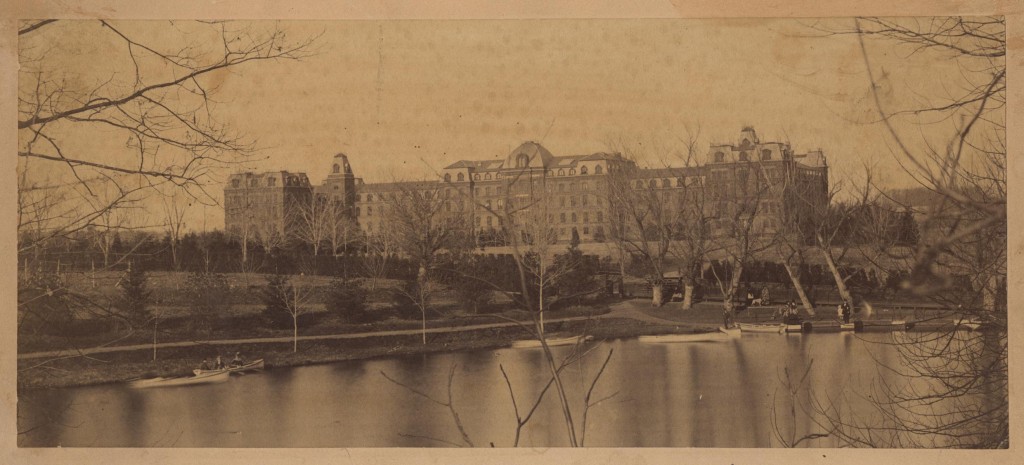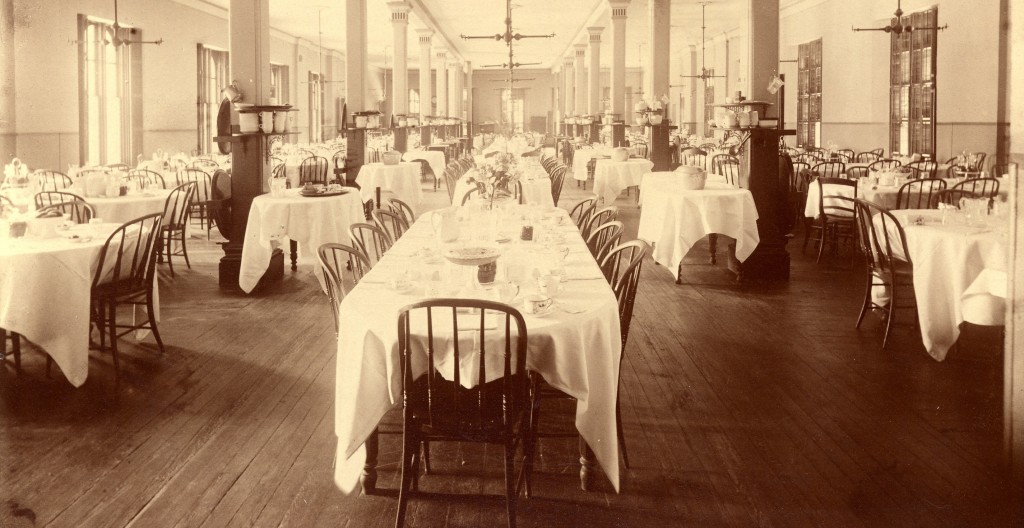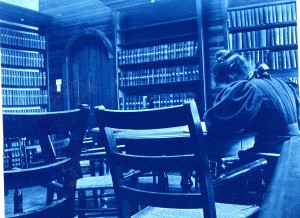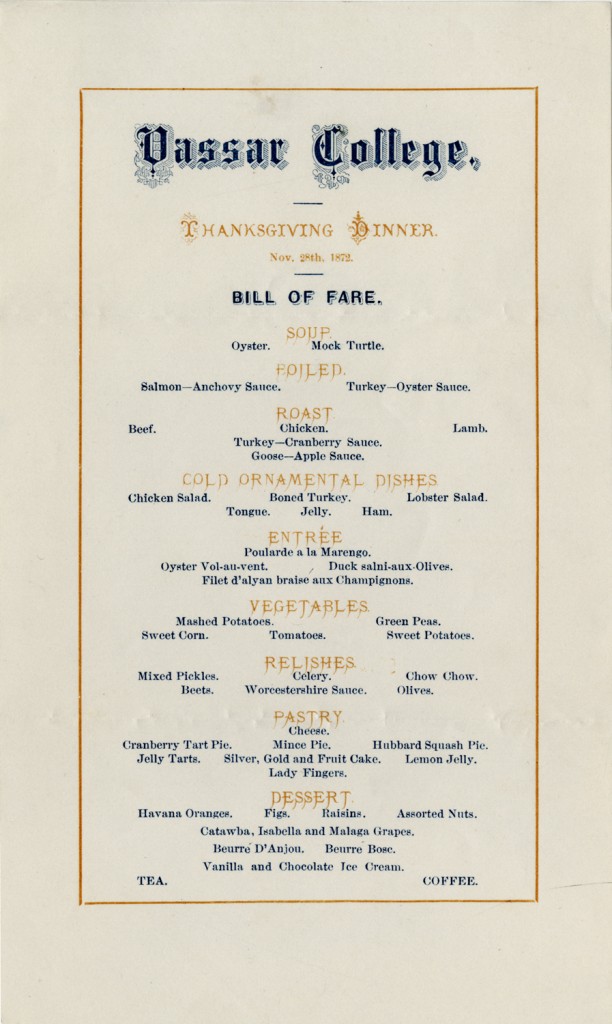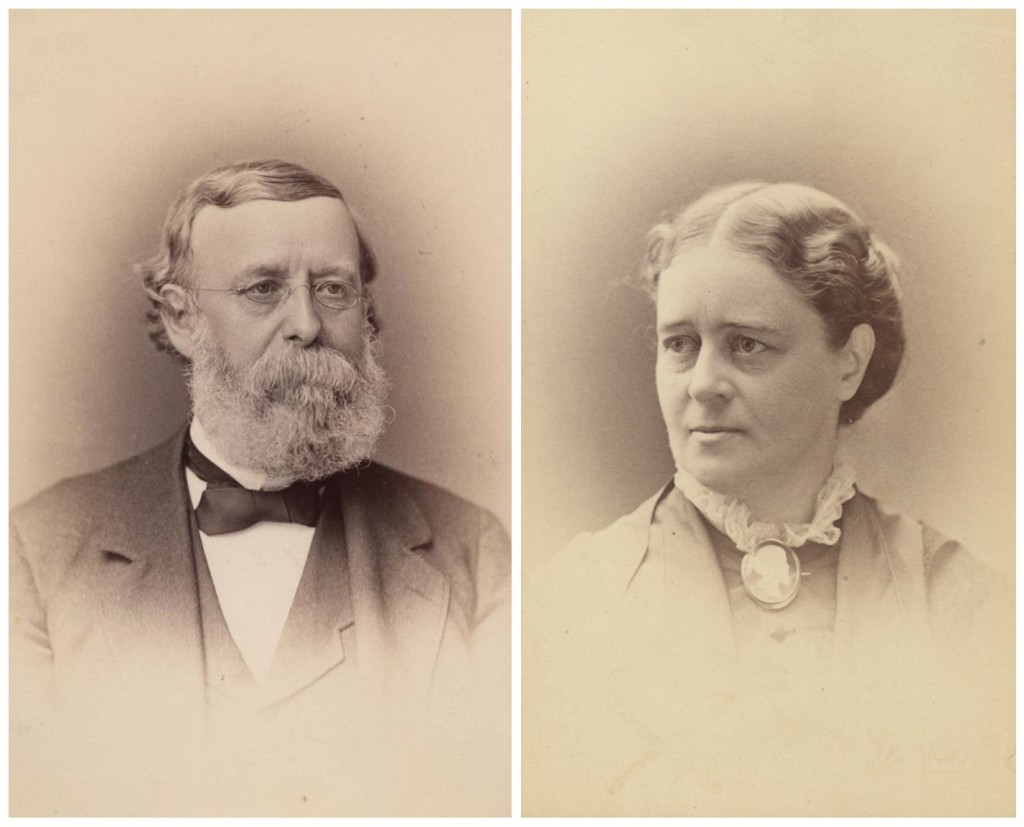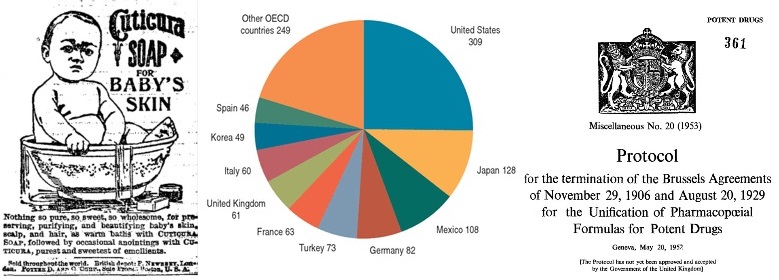Thanksgiving, 1872
Last year we shared a collection of menus from Vassar Thanksgivings past. This year we’re moving beyond the food to offer an account of how Vassar students spent the full holiday nearly 140 years ago, from dawn to dark. The piece appeared in the January 1873 issue of the Vassar Miscellany.
Thanksgiving Day dawned clear and bright upon us. That is to say, although we can not assert this for a fact, not having made any personal observations in the matter, it is safe to suppose that a perfect dawn must have preceded the perfect day which followed. The air blew fresh from the far-away mountain-tops, with a dash of snow and a tingle of ice in it that was particularly exhilarating. The sun did his very best beaming, the sky intensified its blue, and the clouds piled up their fleeciness. If we had not such an extreme dislike to anything which savors of originality, we might have been led to exclaim, “O, what is so rare as a day in November!” As it was, we bit our lips, and kept the sentiment in its proper place.
The half-past eight arrangement for breakfast was highly satisfactory to all parties. To tell the truth, the arrangement seemed much more satisfactory than the breakfast. But that was to be expected: for students are proverbial grumblers; and the occasional remarks overheard about “spreading things out” and a “consistent evenness” must have been the product of thoughtlessness or—the north side of the dining-hall. However that may have been, it was indisputably proved that “a short horse is soon curried.” Prayers after breakfast brought back “ye olden time,” and reminded us that Thanksgiving Day was not appointed for the sole purpose of eating turkey. Some, of us had difficulty in realizing this fact, and it required a great deal of logic to convince us; but in time we all assented to it.
As soon as practicable we joined the company of anxious and scribbling Juniors in the library, who were poring over Shakespeare and Lamb and Froude in a last desperate struggle with those eternal essays. Burying ourself in a corner, we proceeded to pound our head against a wall of books, hoping that such a performance would send ideas showering upon the paper. Judging from analogy and experience, we concluded that every other girl was doing about the same thing. As fast as a respectable number of ideas were thus knocked out, one after another departed, wearing that particular smile of relief which is especially exasperating to the captive ones.
For two hours or more before dinner the grounds were pervaded by people “getting up an appetite.” This was preparatory to “getting up a toilet,” and both objects were accomplished with a wonderful degree of success. To describe the former would be unkind; to describe the latter would be impossible. Behold us, then, O imaginative reader, seated in the dining-hall at half past three, each with her “own particular,” her best gown, best behavior, best smile, and best appetite. The dinner was gotten up in the very best style of our steward, and was as like the one of last year as anything well could be. Those brave individuals who began with the “intention of partaking of every dish, gave up in despair before half accomplishing their purpose. It was, indeed, rumored that one plucky damsel had achieved the glorious work, but she has not since been heard from. The question of time was clearly not involved in the solution of this problem, for whatever in that line cannot be accomplished in three hours, is so infinitesimal that it may practically be disregarded.
We draw a veil over the hour that followed. Enough to say, that at its expiration we seated ourselves in chapel to listen to readings by the President. His kindness in reading to us was only exceeded by the excellence of his elocution. The selections were from the “Merchant of Venice,” and included nearly all the favorite scenes.
Miss Terry received in the parlors till nine o’clock, when we mustered our forces tor a fresh attack in the dining-hall. All things considered, the victory which we achieved was marvelous. We accomplished all that could reasonably have been expected of us.
The spirits of just men made perfect, held undisputed sway over the house that night. Our ancestors from time out of mind passed in solemn procession before our astonished vision. Ghosts of long-forgotten friends with mournful visages, shook the finger of reproach at us. Hollow-eyed children, imps of darkness, weird and fantastic forms, floated around our pillows, and the air was full of heavy oppression. Night was eternal; the sun had set forever; the firmament was a blank; existence was just becoming utterly unbearable, when a vigorous shake from our room-mate recalled our wandering wits.
However blessed the man who invented Thanksgiving may be, the demented individual who got out a patent on the day after, should have been forced to leave the country.
You can read this account in its original form on pages 124-126 of the Vassar Miscellany, January 1873.
Spotlight on new electronic resources
The Vassar College Libraries have purchased thousands of electronic journals and databases for library patrons, and we are adding more all the time—over the summer of 2013, the library purchased more than two dozen databases to add to the collection. Here are the highlights of some of our recent electronic acquisitions.
What is it? The iLibrary is the online library portal for the Organisation for Economic Cooperation and Development (OECD). Here, you can find books, papers and statistics published by the OECD. The iLibrary also contains materials published by the International Energy Agency (IEA), the Nuclear Energy Agency (NEA), the International Transport Forum (ITF), and the OECD’s Programme for International Student Assessment (PISA).
How can I search? In addition to the basic keyword and advanced search options, the iLibrary allows users to browse by country or by publication type (books, papers, statistics, etc.). Users can also browse materials based on 17 different “themes,” or categories, by which the OECD has sorted its publications. These themes include “Development,” “Economics,” “Science and technology,” and “Social issues/migration/health.”
What is it? The House of Commons Parliamentary Papers collect primary source documents dealing with the governance of the United Kingdom. Parliamentary Papers includes committee reports, bills, and other papers and accounts produced by the House of Commons. This resource also includes the Hansard, which collects transcriptions of the House of Commons debates. The library has had access to the 19th century papers (1801-1900) since 2008; however, we have recently purchased access to the 20th century parliamentary papers (1901-2003/4) as well.
How can I search? The interface allows for searching across a number of categories, including by keyword, date, chair, or author/session. There are a number of limits that can be applied to refine the search, such as limits by certain types of papers, limits by year range, or limits to materials containing illustrations. Users can also browse either the papers or the Hansard by year and volume.
What is it? The Daily mail began publication in 1896 as a broadsheet tabloid newspaper. Today, it is one of the highest circulating daily newspapers in Great Britain, known for its middle-class readership. The archive collects all issues published from the first in 1896 through 2004, including the Daily mail Atlantic edition, published for use on trans-Atlantic ocean liners. Users can view digital facsimiles of a particular article, or they can view complete issues page by page, complete with pictures and advertisements.
How can I search? The archive has basic and advanced search features. In the advanced search, users have the option to limit by certain sections of the paper, like “Editorial and Commentary,” “Features,” or “Advertising.” There is also a “Browse by date” option, where users can limit to the Daily mail, the Atlantic Edition, or special issues.
These and many other databases can be found by searching the library catalog, searching Discover, or selecting the “Databases” tab of the search box on the library’s homepage.
For more information from the database providers, see:
House of Commons Parliamentary Papers
If you need additional assistance using our electronic resources, or if you would like to suggest a new electronic resource purchase, please contact one of our Research Librarians directly or use the Ask a Librarian link.

